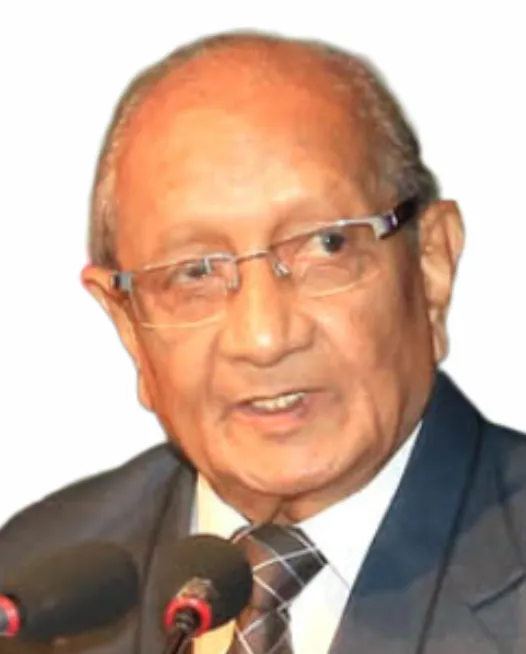Message from
GENERAL SECRETARY OF CMS & ICCJW

Mr Ratan Chandra Gupta
General Secretary of CMS & ICCJW
Former Joint Secretary, Law & Parliamentary Affairs
Government of U.P., INDIA
“Laws not enforced cease to be laws and rights not defended wither away”
— Thomas Moriarty
Article 51 of the Constitution of India relates to international peace and security. The spirit of the provisions of Article 51, as enshrined in the Constitution of India, acts as a beacon and reflects an earnest desire for the maintenance of world peace and security by avoiding conflicts and wars in the interest of the entire human race. The development of science, technology, transport and communication, information technology and the expansion of international trade and commerce have brought the world together as a ‘global village’, and hence all these developments call for a new world order, which is possible only by the maintenance of world peace and security.
The present problems of the world, the like huge stockpile of nuclear arms, dangers of low and high intensity wars among nations, terrorism (including cross-border terrorism), boundary disputes, ethnic disputes, economic and political problems, environmental degradation, problems of disputes based on religions, etc., which affect the entire humanity, can be solved only by an impartial world body with enough powers to implement its directives, decisions and the law.
Since the Second World War, wars have been fought in a large number of countries in which hundreds of millions of people have died. The ongoing wars in the world have resulted in large-scale death and destruction. A large number of children have also died, and many have become destitute and have lost their parents. Millions of people have become refugees and taken shelter in neighbouring countries. The war has adversely affected the world economy and disrupted the environment. The situation has created apprehension of a third world war.
According to the International Peace Research Institute, Stockholm (SIPRI), expenditure on defence by various countries of the world during the year 2022 was estimated as equivalent to 2240 billion US dollars. A very small percentage of this expenditure can meet expenditure on universal education, basic health and nutrition for children and can also provide clean water and sanitation worldwide.
From ancient times, Indian philosophy and vision seek to bring humankind to the path of peace, cooperation, co-existence, non-violence, human dignity and human advancement and believe in the universality of mankind as one human family, as envisaged in the ancient Indian ethos of ‘Vasudhaiv Kutumbakam’, which means that the entire world is one family. The provisions of Article 51 of the Constitution of India embody an affirmation of that philosophy and those ideals. The promotion of international peace and security as a constitutional directive is a declaration made by the people of India not only to the Indian society but indeed to all people of the world.
The vision given by Article 51 of the Constitution of India for international peace and security also enjoins us all to strive for maintaining just and honourable relations between nations and for fostering respect for international law. But one can have respect for international law if it is based on justice and equality and is enforceable on all peoples and nation-states. The present ‘so-called’ international law has no universal sanction, and therefore, it has not been able to solve many problems. The result has been that big and powerful nations, by military action and imposing sanctions, have only brought misery, hunger, disease and poverty to more people, and problems remain unsolved and sometimes aggravated. Article 51 also enjoins us that, instead of violence and war, international disputes must be settled by arbitration.
The provisions of Article 51 of the Constitution of India are a unique provision propounding a great Indian philosophy, and the spirit of this Article creates an awareness and acts as a beacon for international peace and security. It can serve as a guideline for framing international law based on justice, equality, co-existence and human dignity in this strife-torn world for the ultimate objective of human advancement. Therefore, Article 51 of the Constitution of India is the reference point of the Conference for international peace and security. We need world laws enacted by a democratically elected World Parliament having sanctions against all the countries of the world.
In order to enforce obedience to such law, there has to be an executive authority and also a world judiciary to decide disputes and for interpretation of such laws.